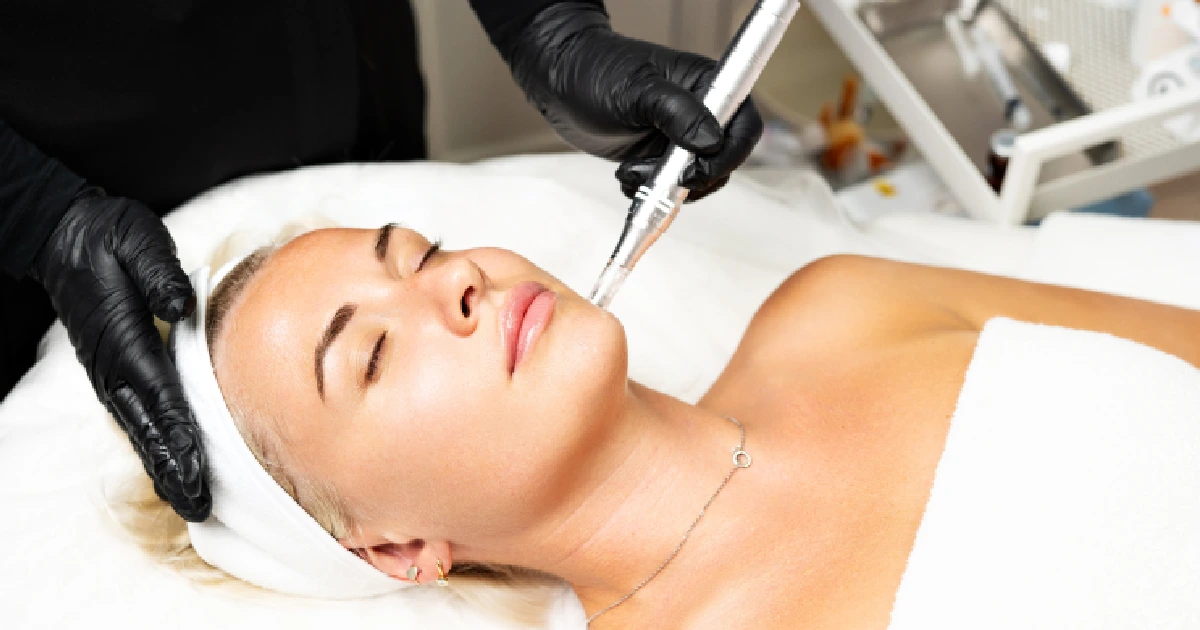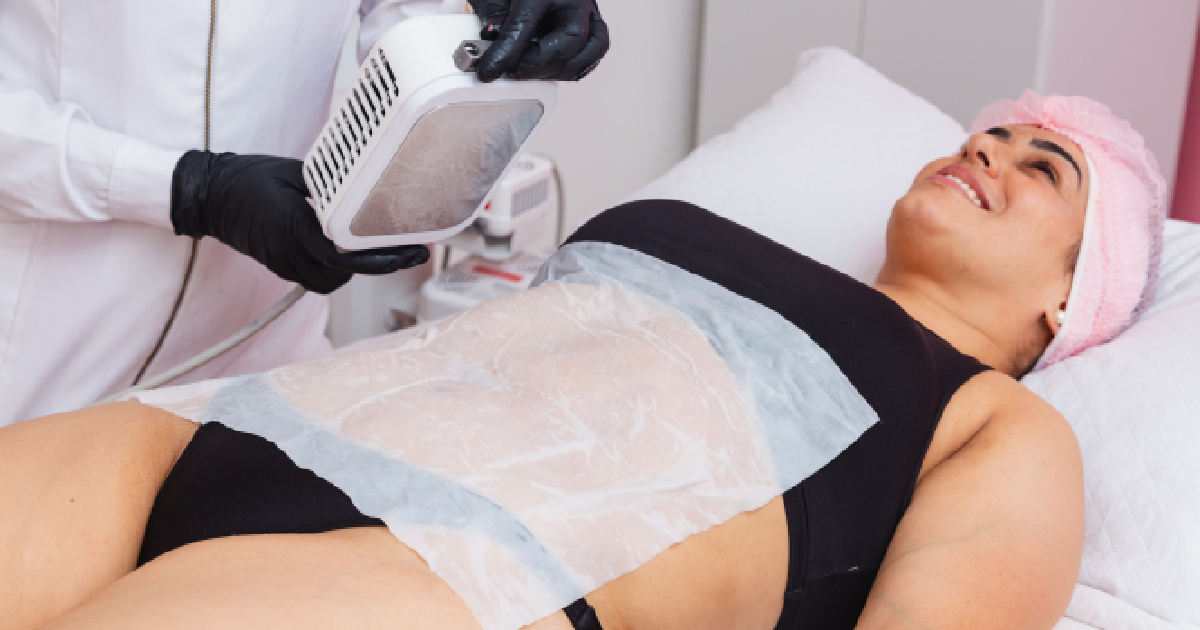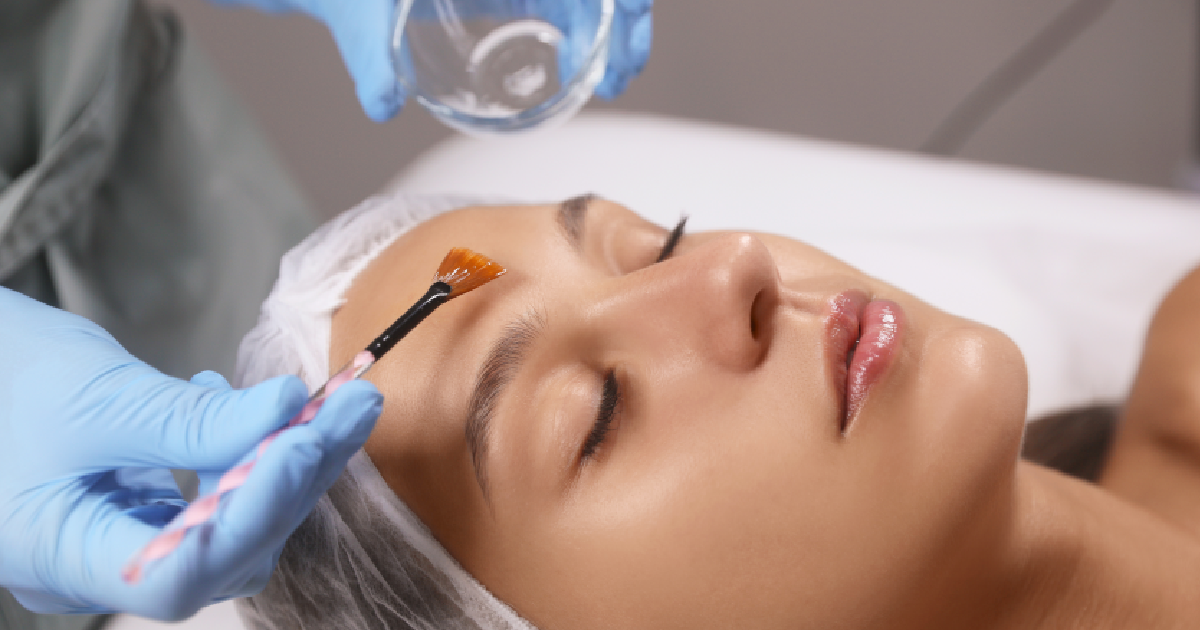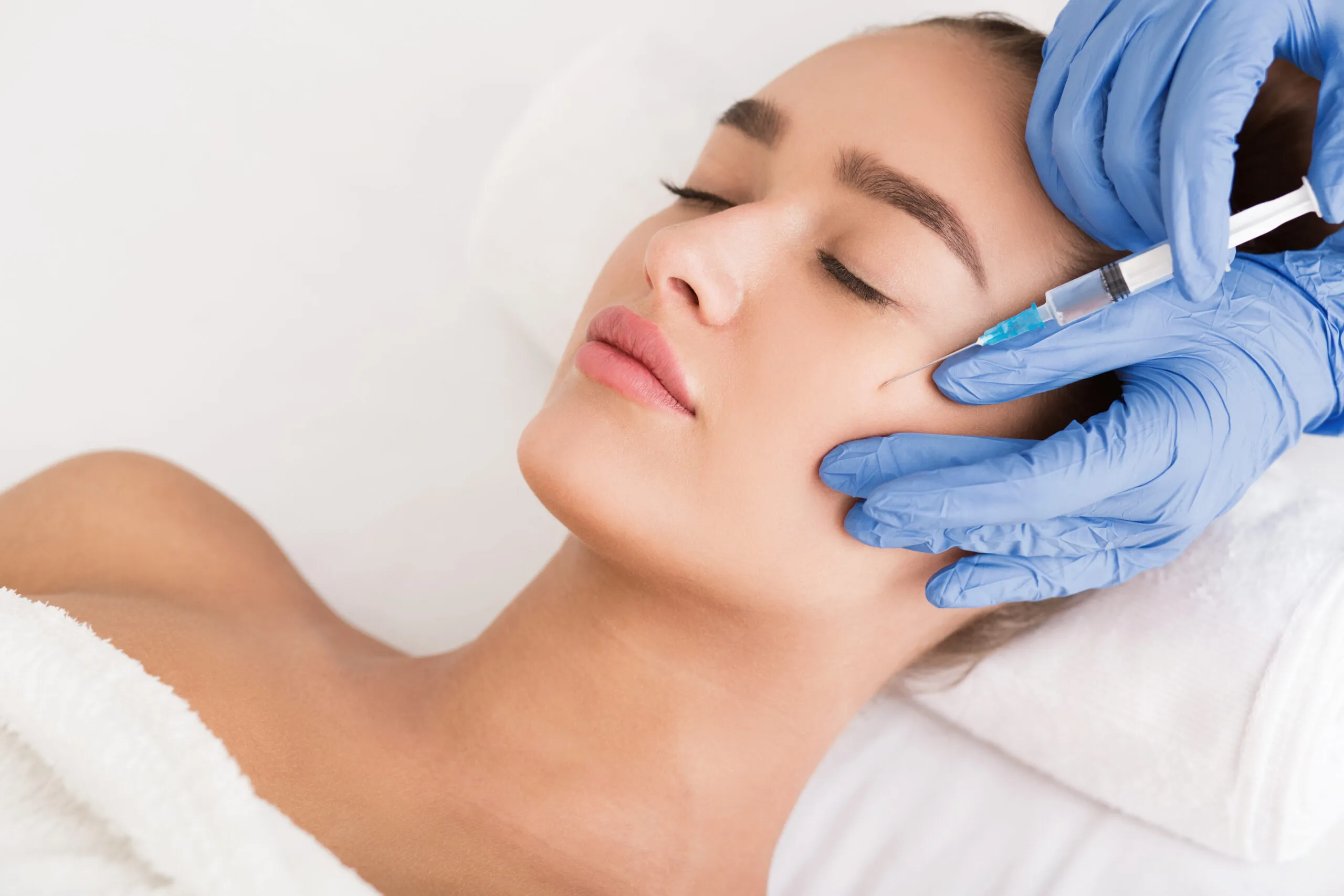Chemical peels have become popular with those looking to rejuvenate their skin and tackle various skin issues. But with so many options and skin types, it’s essential to understand whether a chemical peel is suitable for everyone. In this blog, we’ll explore the benefits, potential side effects, and suitability of chemical peels for different skin types.
What is a Chemical Peel?
A chemical peel is a skin therapy that works by applying a chemical solution to the skin. This causes the top layer to exfoliate and eventually peel off, revealing smoother, more youthful-looking skin underneath. Chemical peels can differ in strength from light to deep, depending on the type of acid used and the desired outcome.
Benefits of Chemical Peels
Chemical peels offer several benefits, making them a go-to solution for many skincare enthusiasts. Here are some key advantages:
1. Improves Skin Texture and Tone
Chemical peels can help smooth rough skin and even out pigmentation, giving you a more consistent and radiant complexion.
2. Reduces Fine Lines and Wrinkles
BChemical peels can promote collagen production and minimize the looks of fine lines and wrinkles, resulting in younger-looking skin.
3. Treats Acne and Reduces Scarring
Chemical peels can unclog pores, lessen inflammation, and create better looks of acne scars, making them a valuable tool in acne management.
4. Enhances Absorption of Skincare Products
Removing the top layer of dead skin allows skincare materials to penetrate more deeply and work more effectively.
Suitability for Different Skin Types
While chemical peels can offer significant benefits, their suitability depending on your skin type and specific concerns.
1. Oily and Acne-Prone Skin
Chemical peels are particularly effective for oily and acne-prone skin. They help control excess oil production, reduce acne breakouts, and minimize acne scars. Salicylic acid peels, due to their oil-soluble properties, are commonly recommended for this skin type.
2. Dry and Sensitive Skin
FLightchemical peels, such as those containing lactic acid, are often the best choice. For those with dry or sensitive skin. These gentler peels help exfoliate without causing excessive dryness or irritation.
3. Combination Skin
Combination skin types can benefit from customized chemical peel treatments that address bily and dry areas. A professional aesthetician can recommend the most suitable peel for your specific needs.
4. Dark Skin T tones
People with darker skin tones must be cautious about chemical peels, as they are more prone to hyperpigmentation. Superficial peels with mild acids, like glycolic or lactic acid, are generally safer options. It’s crucial to talk with a skincare professional to ensure the peel is suitable and minimize risks.
Preparing for a Chemical Peel
Before undergoing a chemical peel, preparing your skin properly is important to ensure the best possible outcome. Here are some steps you can take to get your skin ready:
1. Consult with a Skincare Professional
The first step is to consult with a qualified skincare expert. They can check your skin type, discuss your goals, and recommend the most suitable peel
2. Follow a Pre-Peel Skincare Routine
Your skincare professional may advise you to follow a specific routine in the weeks before your peel. This might include using certain products, such as gentlee cleansers, moisturizers, and possibly a mild exfolian ,to prepare your skin.
3. Avoid Certain Products and Treatments
In the days before your peel, you should avoid using materials that irritate your skin, such as retinoids, harsh exfoliants, and certain acne treatments. You should also avoid waxing, laser treatments, and other aggressive skincare procedures.
4. Hydrate Your Skin
Keeping your skin well-hydrated is essential before a chemical peel. Drink plenty of water and use a good moisturizer to ensure your skin is in optimal condition.
5. Protect Your Skin from the Sun
Avoid and limit yourself to sun exposure in the weeks before your peel, and use a broad-spectrum sunscreen with at least SPF 30. Sun damage can increase the risk of complications and affect the results of your peel.
Aftercare Tips for Optimal Results
To maximize the advantages of your chemical peel and ensure your skin heals properly, follow these aftercare tips:
1. Moisturize Regularly
- After a peel, it is crucial to keep your skin hydrated. Use a gentle, hydrating moisturizer to help soothe and repair your skin.
2. Avoid Sun Exposure
Protecting your skin from the sun is ideal. Wear a broad-spectrum sunscreen with at least SPF 30 and avoid direct sunlight as much as possible.
3. Avoid Harsh Skincare Products
Products containing retinol, exfoliants, or any other harsh ingredients until your skin has fully healed.
4. Follow Professional Advice
Always follow the aftercare instructions given by your skincare professional to ensure the best results and minimize risks.
Potential Side Effects
While chemical peels are ideally safe when performed by a professional, they can have some side effects, especially if not done correctly. Here are a few potential side effects to be aware of:
1. Redness and Irritation
After a peel, it’s common to experience redness and irritation, which usually subside within a few days. USoothingskincare products can help alleviate these symptoms.
2. Peeling and Flaking
As the name suggests, chemical peels cause the skin to peel and flake. This is a normal part of the process, but avoiding picking at the skin is essential too prevent scarring.
3. Sun Sensitivity
Your skin will be a bit sensitive to the sun after a chemical peel, so it’s important to use a hhigh-SPFsunscreen and limit sun exposure to avoid damage.
4. Hyperpigmentation
Chemical peels can sometimes cause hyperpigmentation, especially in darker skin tones. This risk can be lessen by choosing the right type of peel and following post-treatment care instructions.
Aftercare Tips for Optimal Results
To enhance the benefits of your chemical peel and ensure your skin heals properly, follow these aftercare tips:
1. Moisturize Regularly
- After a peel, it is crucial to keep your skin hydrated. Use a gentle, hydrating moisturizer to help soothe and repair your skin.
2. Avoid Sun Exposure
Protecting your skin from the sun is ideal. Wear a broad-spectrum sunscreen with at least SPF 30 and avoid direct sunlight as much as possible.
3. Avoid Harsh Skincare Products
Products containing retinol, exfoliants, or any other harsh ingredients until your skin has fully healed.
4. Follow Professional Advice
Always follow the aftercare instructions given by your skincare professional to ensure the best results and minimize risks.
Conclusion
Chemical peels can be a fantastic solution for making better skin texture, reducing signs of aging, and treating acne. However, their suitability varies based on skin type and individual needs.
Consulting with a skincare professional is crucial to identify the best type of chemical peel for your skin and to ensure safe and effective results.
Book an appointment with us here at MD Beauty Spa to explore the best chemical peel options for your skin. Our experienced professionals will guide you through the process to achieve the glowing, healthy skin you desire.
We also have a self-assesment test for your reference. We hope to see you around here the clinic!





